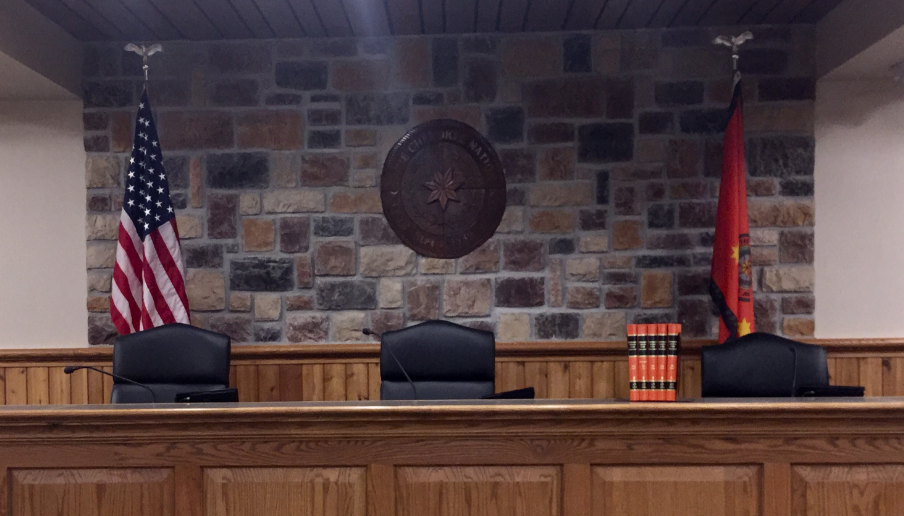
- Details
- By Darren Thompson
TAHLEQUAH, Okla. — The Cherokee Nation removed the term “by blood” from its Constitution, paving a path for other tribes on an often debated topic in Indian Country: blood quantum.
According to the Cherokee Nation’s website, the Cherokee Nation is the largest tribe in the United States with more than 380,000 tribal citizens worldwide and over 141,000 Cherokee Nation citizens residing within the tribe's reservation boundaries in Oklahoma.
The decision was made by the Cherokee Nation Supreme Court on Monday, Feb. 22, 2021, and was made in response to the federal Cherokee Nation v. Nash case where descendants of Black slaves, known as Freedman, have full rights as Cherokee citizens based on the Treaty of 1866.
In the Cherokee v. Nash, Senior United States District Judge Thomas F. Hogan wrote:
"In the 1866 treaty, the Cherokee Nation promised that ‘never here-after shall either slavery or involuntary servitude exist in their nation’ and ‘all freedmen who have been liberated by voluntary act of their former owners or by law, as well as all free colored persons who were in the country at the commencement of the rebellion, and are now residents therein, or who may return within six months, and their descendants, shall have all the rights of native Cherokees ….’
“ In accordance with Article 9 of the 1866 Treaty, the Cherokee Freedmen have a present right to citizenship in the Cherokee Nation that is coextensive with the rights of native Cherokees.”
“Provisions in Cherokee Nation’s constitution and laws that deny descendants of Freedmen all the rights and obligations of Cherokee citizenship violate our 155-year-old treaty obligations and are void," Cherokee Nation Attorney General Sara Hill said in a statement. “Cherokee citizens of Freedmen descent are simply this: Cherokee citizens.”
The court's order states that the “by blood" language is “illegal, obsolete and repugnant to the ideal of liberty.”
“These two words have no place in the Cherokee Nation, neither in present day, nor in its future," the order says.
The nation says it has about 8,500 enrolled citizens of Freedmen descent.
“Cherokee Nation is stronger when we move forward as citizens together and on an equal basis under the law. The decision in the Cherokee Nation Supreme Court reaffirms previous decisions by the court on the issue of equality,” Cherokee Nation Principal Chief Chuck Hoskin Jr. said in a statement. “More importantly, the court has acknowledged, in the strongest terms, our ancestors’ commitment to equality 155 years ago in the Treaty of 1866. My hope is that we all share in that same commitment going forward.”
More Stories Like This
Native News Weekly (August 25, 2024): D.C. BriefsUS Presidents in Their Own Words Concerning American Indians
Native News Weekly (December 14, 2025): D.C. Briefs
Wounded Knee Massacre Site Protection Bill Passes Congress
Two Murdered on Colville Indian Reservation
Help us defend tribal sovereignty.
At Native News Online, our mission is rooted in telling the stories that strengthen sovereignty and uplift Indigenous voices — not just at year’s end, but every single day.
Because of your generosity last year, we were able to keep our reporters on the ground in tribal communities, at national gatherings and in the halls of Congress — covering the issues that matter most to Indian Country: sovereignty, culture, education, health and economic opportunity.
That support sustained us through a tough year in 2025. Now, as we look to the year ahead, we need your help right now to ensure warrior journalism remains strong — reporting that defends tribal sovereignty, amplifies Native truth, and holds power accountable.
 The stakes couldn't be higher. Your support keeps Native voices heard, Native stories told and Native sovereignty defended.
The stakes couldn't be higher. Your support keeps Native voices heard, Native stories told and Native sovereignty defended.
Stand with Warrior Journalism today.
Levi Rickert (Potawatomi), Editor & Publisher
